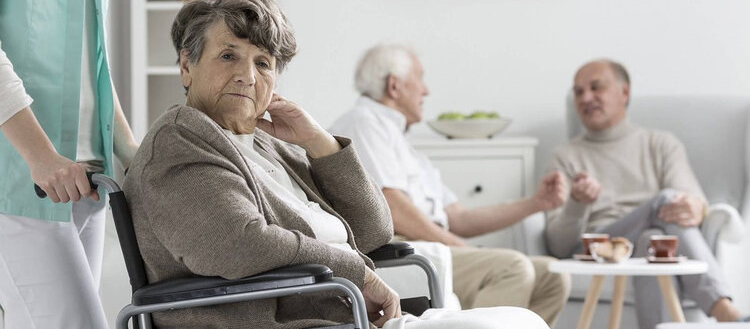Elder Care Negligence

Elder Care Negligence - Best Personal Injury Attorney, NY & NJ
Elder neglect occurs when the person responsible for providing care to an elder fails to give the proper care. Victims of elder neglect are most often senior citizens who live in care home facilities and are unable to care for themselves on a daily basis. In most states, elder persons are those who are over sixty years old. However, some states define an elder as someone over the age of sixty-five.
Neglect is often mentioned alongside elder abuse, but many jurisdictions distinguish between the two terms. Neglect generally implies that the victim was neglected, and didn’t receive the proper care and attention. The term typically involves violations that are omissions. Some examples of elder neglect include:
-
→ Failing to provide the basic necessities for the elderly person, such as food, water, clothing, and shelter;
-
→ Failing to administer medicines or treatments to the elder according to their physician’s instructions;
-
→ Allowing the elder to live in unreasonable poor, uninhabitable, or unsuitable living conditions; and
-
→ Failing to communicate important information to another person as requested by the elder, especially when such failure results in physical harm of the elder.
Most state laws define elder abuse as any act that results in the physical harm of the elder or striking them. It can also include emotional and mental harm to an elder. Additionally, some laws include non-consensual sexual contact in their definition. Elder abuse can further be classified as passive or active abuse.
Passive abuse occurs when the caregiver’s accidental negligence results in the elder’s abuse. Active abuse occurs when the caregiver intentionally fails to meet the elder’s needs. Active abuse most often occurs when there is hostile tension between the elder and caregiver, and usually results in criminal charges.
In most cases, in order for a claim to be actionable, the elder must have suffered some form of physical or economic harm, such as bodily harm or loss of property. Emotional injuries can be the subject of a lawsuit in some states. However, they are generally more difficult to prove unless the physical injury has resulted from emotional distress.
Here are a few examples of frequently asked questions we encounter in our day-to-day practice:
Who Can Be Held Liable for Neglect? Is it Required to Report Elder Abuse?
Generally speaking, any person who is legally charged with caring for an elder may be held liable for their neglect. This could include:
-
→ Nursing home staff;
-
→ Caregivers who live with the elder;
-
→ Those who provide respite care;
-
→ Medical professionals; or
-
→ Parents, relatives, or friends who have assumed legal responsibility for the elder.
It may also be a violation to attempt to render care for an elder if you have not been authorized to do so.
Most state laws require anyone who has witnessed elder abuse to report the incident to the appropriate agency. Examples could include:
-
→ Health care professionals;
-
→ Human services professionals;
-
→ Law enforcement personnel; and
-
→ Long-term care facility employees.
All of the aforementioned people are required to make reports when presented with claims of elder abuse or neglect. Any person who is in some way responsible for the care of an elder should make a report if they reasonably believe that the elder has been subjected to abuse. Failing to report elder abuse or neglect is actually considered to be a misdemeanor crime in most states.
Criminal elder abuse charges could result in a monetary fine, and/or a short jail sentence. Additionally, in a few jurisdictions, if a person has a duty to report the abuse or neglect but fails to do, they may be sued by the elder or the elder’s family. The offender could then be liable for the victim’s losses and may be forced to pay costs such as hospital bills and attorney’s fees.
What Else Should I Know About Elder Law?
-
In order to prove a lawsuit against an elder’s caretaker, the plaintiff must determine what type of personal injury was caused by the caretaker. In a negligence claim, the plaintiff would need to prove:
-
→ The defendant had a duty of care to the harmed or neglected elder;
-
→ The defendant breached their duty by harming or neglecting the elder;
-
→ The individual receiving care was actually harmed by their caretaker; and
-
→ The caretaker’s actions resulted in specific injuries.
If the elder is a resident of a nursing home, the Nursing Home Reform Act established the Nursing Home Resident’s Bill of Rights. These rights include:
-
→ The right to be free from abuse;
-
→ The right to privacy;
-
→ The right to make complaints against the home without facing retaliation or discrimination; and
-
→ The right to be treated with dignity.
Additionally, it is important to be aware of signs of nursing home abuse. These include:
-
→ Bruises, bedsores, or other injuries;
-
→ Excessive, unexplained weight loss;
-
→ Dehydration; or
-
→ Unclean conditions.
-














